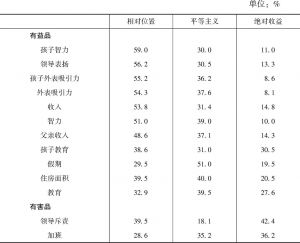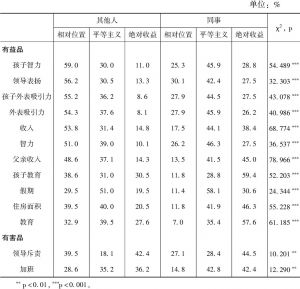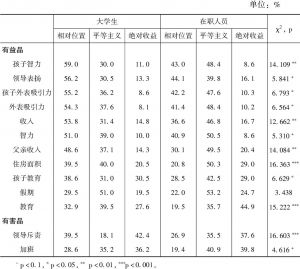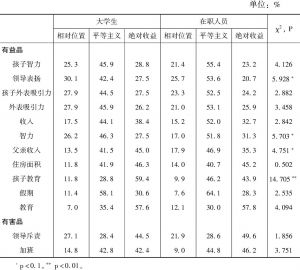论文
参照群体、社会身份与位置考虑
摘要
社会科学研究中对人们的社会比较倾向存在着三种不同的观点:绝对收益考虑、相对位置考虑和平等主义考虑。通过针对在校大学生和在职人员两类群体的问卷调查,本文探讨了不同条件下人们社会比较倾向的复杂性和变异性。研究发现,随着比较事项、参照群体和社会身份等条件的变化,个体的位置考虑也会相应地发生变化。在参照群体从其他人变为同事后,无论是在校学生还是在职人员,在所有事项上的相对位置考虑都明显降低,而平等考虑和绝对收益考虑明显增加。当参照群体为其他人时,在几乎所有事项上在职人员明显比在校大学生表现出更低的相对位置考虑和更高的平等考虑;而当参照群体为同事时,在绝大多数事项上在职人员的位置考虑与在校大学生没有显著差异。
检索正文关键字
论文目录
- 一 引言
-
二 文献回顾与研究假设
- (一)不同事项上的位置考虑
- (二)参照群体与位置考虑
- (三)社会身份与位置考虑
- 三 研究方法
- 四 不同比较事项上的位置考虑
- 五 不同参照群体下的位置考虑
- 六 不同社会身份下的位置考虑
- 七 总结与讨论
相关文献
查看更多>>>





